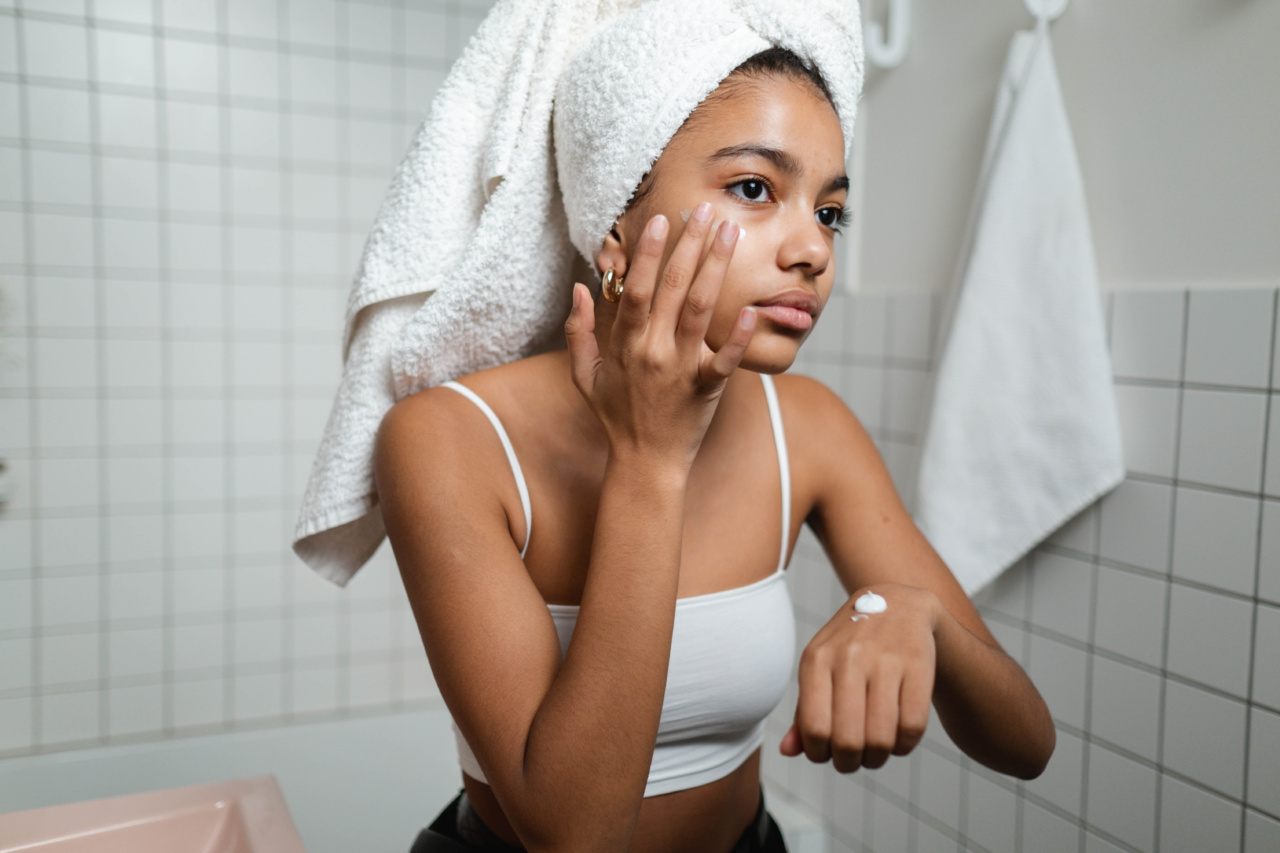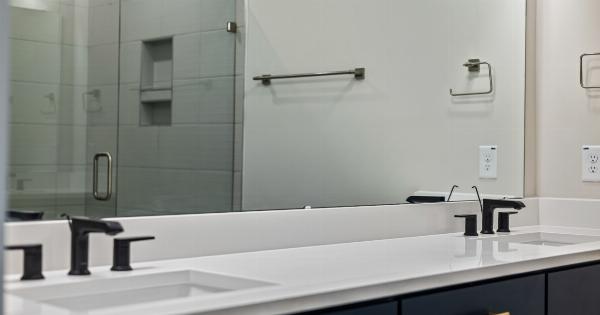When we think of showers, we typically associate them with cleanliness and rejuvenation.
However, what if we told you that your daily shower could actually be detrimental to your health? It may sound shocking, but there are a number of hidden hazards lurking within your shower that could potentially harm your body in more ways than you can imagine. From harmful chemicals to unseen bacteria, it’s time to take a closer look at the potential health risks of your shower routine.
1. Chlorine: The Silent Culprit
Chlorine is commonly added to tap water as a disinfectant, including the water that comes out of your showerhead. While it is effective in killing harmful bacteria, chlorine itself poses a potential health risk.
When you take a hot shower, the steam produced allows chlorine to be released into the air. This can lead to respiratory problems, skin irritation, and even certain types of cancer over long-term exposure.
2. Volatile Organic Compounds (VOCs)
Volatile organic compounds, also known as VOCs, are chemicals that easily vaporize into the air at room temperature. They are commonly found in products such as shampoos, conditioners, body washes, and soaps.
When you use these products in the shower, the hot water and steam cause VOCs to evaporate, resulting in poor indoor air quality. Prolonged exposure to VOCs can cause a variety of health issues, including respiratory problems, headaches, and allergic reactions.
3. Mold and Mildew
The warm, moist environment of your shower creates the perfect breeding ground for mold and mildew. These microscopic fungi can thrive on shower curtains, tiles, grout, and even inside your showerhead.
Breathing in mold spores can trigger allergies, asthma attacks, and respiratory infections. It is essential to regularly clean and maintain your shower area to prevent the growth and spread of mold and mildew.
4. Hard Water Woes
If you live in an area with hard water, your shower experience may not be as harmless as you think. Hard water is characterized by a high mineral content, typically consisting of calcium and magnesium ions.
This can result in mineral buildup on shower fixtures and surfaces, leading to staining and reduced water flow. Moreover, bathing in hard water can dry out your skin and hair, causing irritation and dullness. Installing a water softener can help alleviate these issues.
5. Hidden Dangers in Your Shower Products
Many shower products on the market today contain potentially harmful ingredients such as parabens, sulfates, phthalates, and artificial fragrances.
These chemicals have been linked to various health concerns, including hormone disruption, skin irritation, and even cancer. It is important to read the labels and opt for natural, organic alternatives whenever possible.
6. Slip and Fall Hazards
A slippery bathroom floor can be a major safety hazard, especially when combined with a wet shower environment. Falls in the bathroom can result in serious injuries, particularly for older adults.
To prevent accidents, ensure that your shower surface has a non-slip mat or textured flooring. Installing grab bars can also provide additional support and stability.
7. Cross-Contamination from Loofahs and Washcloths
Loofahs and washcloths may feel soft and cleansing, but they can harbor a significant amount of bacteria. When left damp after use, these shower accessories become breeding grounds for harmful microorganisms.
Using a loofah or washcloth that hasn’t been properly cleaned can introduce bacteria to your skin, leading to infections or skin irritations. Regularly washing and replacing these items is crucial in maintaining good hygiene.
8. Water Temperature Extremes
While a hot shower may be relaxing, excessively hot water can be damaging to your skin. It can strip away natural oils, leading to dryness, itchiness, and even burns.
On the other hand, cold showers can cause constriction of blood vessels and result in decreased circulation. Finding the right balance and avoiding extreme water temperatures is vital for preserving your skin’s health.
9. Poor Ventilation and Humidity
Inadequate ventilation in the bathroom can contribute to high humidity levels, especially after a steamy shower. Excess humidity can promote the growth of mold and mildew, worsen allergies, and cause respiratory discomfort.
Installing a ventilation fan or keeping a window open during and after showers can help reduce humidity and improve air circulation.
10. Neglecting Regular Shower Cleanliness
Finally, neglecting to clean your shower regularly can lead to a buildup of soap scum, mineral deposits, and bacteria. These deposits can be unsightly and hard to remove, while the bacteria can exacerbate existing health issues.
Establishing a routine for deep-cleaning your shower, including scrubbing the tiles and disinfecting the showerhead, can significantly reduce the health risks associated with a dirty shower.






























